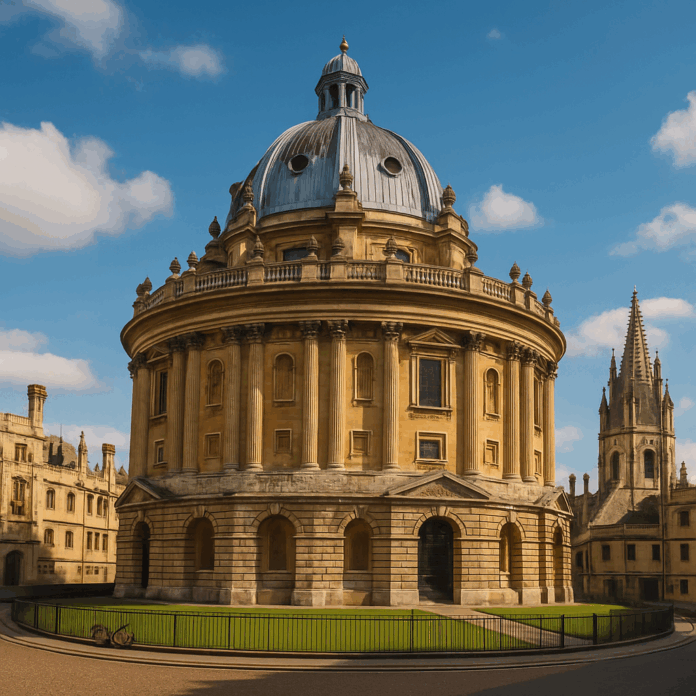Oxford University isn’t just one of the world’s oldest and most prestigious institutions—it’s a treasure trove of history, secrets, and extraordinary achievements. While many know it for academic excellence, there’s a side of Oxford that remains unknown to most. From secret traditions to remarkable alumni and historic libraries, here are the top 10 facts about Oxford University that will fascinate anyone curious about this legendary institution.
Introduction
Oxford University, located in the heart of England, is more than just a university. Founded over 900 years ago, it has stood the test of time, shaping the minds of scholars, thinkers, and leaders across the globe. Its historic architecture, sprawling libraries, and world-class faculty make it a symbol of academic excellence. But what truly sets Oxford apart is its rich tapestry of traditions, stories, and achievements that go beyond classroom learning.
For centuries, Oxford has not only imparted education but also cultivated leadership, innovation, and cultural influence. From political leaders to Nobel laureates, the university has been at the center of shaping history, science, and literature. However, beneath its prestigious image, Oxford hides countless interesting and lesser-known facts that most people are unaware of.
Oxford University is often associated with high academic standards, competitive admissions, and world-renowned research. But the university is also a living museum of history and culture, with centuries-old colleges, secret societies, and unique student traditions. Its libraries hold millions of books, its gardens showcase rare flora, and its alumni have left indelible marks in almost every field imaginable.
In this article, we’ll dive deep into 10 amazing facts about Oxford University that go beyond the ordinary. Whether you are a prospective student, a tourist, or a curious reader, these insights will give you a new perspective on one of the most iconic universities in the world.
1. Oxford University Is Older Than You Think
Did You Know?
Teaching at Oxford began as early as 1096, making it the oldest university in the English-speaking world. While the exact founding date is unknown, it is clear that Oxford has been a center of learning for over nine centuries.
A Timeline of Growth
-
12th century: Scholars began gathering in Oxford after being expelled from the University of Paris.
-
13th century: Colleges started forming to provide accommodation and teaching.
-
16th century: Oxford expanded with new faculties and libraries, solidifying its academic prominence.
This long history has contributed to Oxford’s reputation for excellence, combining tradition with modern innovation.
2. Oxford Has No Official Founding Date
Unlike many universities with clear inception dates, Oxford does not have a formal founding year. Scholars gradually congregated over time, and colleges formed organically.
Did You Know?
The university officially recognizes teaching in 1096, but there is no charter or single founder. This unique evolution makes Oxford not just a university, but a living institution shaped by centuries of collaboration and intellectual growth.
3. Birthplace of the Oxford English Dictionary
Oxford University is the birthplace of the Oxford English Dictionary (OED), arguably the most authoritative dictionary in the world. The project began in 1857 to document the English language in its entirety.
Why It’s Special
-
The OED took over 70 years to complete, with contributions from thousands of volunteers.
-
It contains 600,000+ words with their historical usage.
-
Scholars at Oxford still maintain and update the dictionary today.
Fun Fact: The OED’s creation reflects Oxford’s commitment to preserving knowledge and understanding language evolution, a cornerstone of humanities scholarship.
4. Colleges with Unique Traditions
Oxford University is composed of 39 autonomous colleges, each with its own culture, traditions, and rules.
Interesting Traditions
-
Formal Hall Dinners: Students wear gowns and enjoy ceremonial meals.
-
Secret Societies: Some colleges have societies that date back centuries.
-
Annual Ceremonies: Unique events like May Morning celebrations and matriculation ceremonies.
Did You Know? Some colleges even have ghost stories, with certain halls reportedly haunted by spirits from centuries past. These traditions create a sense of community, continuity, and mystery that defines student life at Oxford.
5. Oxford Libraries – A Scholar’s Paradise
Oxford University has over 100 libraries, with the Bodleian Library being the most famous.
Highlights
-
Bodleian Library: Houses over 13 million printed items and manuscripts.
-
Radcliffe Camera: Iconic circular library used for research and study.
-
Special Collections: Rare books, medieval manuscripts, and ancient maps.
Did You Know? Many libraries at Oxford are centuries old, yet they remain fully functional and central to the university’s research mission. The library system reflects Oxford’s blend of tradition and modern scholarship.
6. Oxford – A Cradle for Global Leaders
Oxford University has produced an extraordinary number of leaders, politicians, and Nobel laureates.
Notable Alumni
-
UK Prime Ministers: Over 30, including Boris Johnson and Margaret Thatcher.
-
Global Leaders: Indira Gandhi (India), Bill Clinton (USA), and Aung San Suu Kyi (Myanmar).
-
Thinkers and Innovators: Stephen Hawking, J.R.R. Tolkien, and Emma Watson (acting and activism).
This shows Oxford’s unique ability to nurture talent across generations and disciplines.
7. Student Life and Cycling Culture
Oxford’s city layout encourages students to walk or ride bicycles, creating a green, sustainable campus.
Campus Experience
-
Bicycles: Essential for navigating narrow streets and historic lanes.
-
Punts: Traditional boat rides along the River Thames (locally called the Isis).
-
Pubs and Cafés: Social hubs where students discuss ideas and socialize.
Did You Know? Oxford’s small-town charm allows students to experience both academic rigor and vibrant social life.
8. Oxford’s Haunted History
Oxford University is famous for its ghost stories and paranormal activity.
Famous Legends
-
Grey Lady of Magdalen College: A mysterious apparition seen wandering the halls.
-
Bodleian Library Ghosts: Reports of shadowy figures during late-night study sessions.
These legends add mystery and charm to the historic university, making Oxford not just a place of learning, but also of folklore and storytelling.
9. The Oldest Botanical Garden in Britain
Founded in 1621, the Oxford Botanic Garden is the oldest in the UK and houses over 6,000 plant species.
Garden Highlights
-
Rare and exotic plants from around the world.
-
Educational programs for students and visitors.
-
Historic greenhouses and beautifully landscaped grounds.
Did You Know? The garden played a crucial role in early botanical research, contributing to global knowledge of plant species and medicinal plants.
10. Alumni Who Shaped the World
Oxford University has nurtured some of the most influential minds in history.
Examples
-
Stephen Hawking: Renowned physicist and cosmologist.
-
J.R.R. Tolkien: Author of The Lord of the Rings.
-
Margaret Thatcher: First female UK Prime Minister.
-
Emma Watson: Actress and UN Women Goodwill Ambassador.
The diverse achievements of Oxford alumni reflect the university’s multidisciplinary approach and its ability to cultivate leaders in every field.
FAQs About Oxford University
1. How many colleges are there in Oxford University?
Oxford University is made up of 39 colleges, each functioning as a semi-independent entity with its own administration, traditions, and student life. These colleges provide accommodation, dining, social events, and academic support, including tutorials. The college system ensures a close-knit community, where students can interact closely with tutors and peers while experiencing a unique culture within the larger university environment.
2. Is Oxford University only for UK students?
No, Oxford University is a truly international institution, welcoming students from all around the world. Approximately 40% of the student body comes from overseas, contributing to a culturally diverse and global learning environment. International students gain access to world-class education, unique traditions, and extensive support networks, making Oxford a vibrant hub of multicultural academic excellence.
3. What is the tutorial system?
The tutorial system is Oxford University’s distinctive teaching method, where students meet with tutors either one-on-one or in very small groups. These sessions focus on discussion, critical analysis, and feedback, allowing students to explore topics deeply. Tutorials help students develop independent thinking, academic rigor, and personalized learning, providing an unmatched educational experience that sets Oxford apart from other universities.
4. Can visitors tour Oxford University?
Yes, Oxford University welcomes visitors through both guided and self-guided tours. Tours provide access to historic colleges, libraries, and iconic landmarks, offering insights into the university’s rich traditions, architectural beauty, and academic heritage. Visitors can explore the campus while learning about Oxford’s history, student life, and world-famous alumni, making it a fascinating destination for tourists and education enthusiasts alike.
5. What makes the Bodleian Library special?
The Bodleian Library is one of Europe’s oldest and most important libraries, housing millions of books, manuscripts, and rare collections. It serves as a central hub for research and study at Oxford University. The library is also renowned for its stunning historic architecture, reading rooms, and archives, making it not only a resource for scholars but a cultural and academic landmark of international significance.
6. Are scholarships available at Oxford?
Yes, Oxford University offers a wide range of scholarships and financial aid programs for both domestic and international students. These include merit-based awards, need-based funding, and subject-specific scholarships. Oxford aims to make education accessible to talented students from diverse backgrounds, helping them pursue academic excellence without financial barriers while contributing to the university’s dynamic, multicultural community.
7. How competitive is Oxford University admission?
Oxford University admission is highly competitive, with thousands of applicants vying for limited spots each year. Admissions consider academic achievements, personal statements, recommendations, and interviews. The process evaluates intellectual ability, motivation, and potential contributions to university life. Only the most outstanding candidates with strong academics, creativity, and critical thinking skills are offered a place, making Oxford one of the most selective universities in the world.
Conclusion
Oxford University is much more than an academic institution. It’s a living legacy of knowledge, history, and culture. From centuries-old libraries to unique student traditions, fascinating ghost stories, and global leaders among its alumni, Oxford offers experiences and stories that go far beyond classrooms.
Exploring these 10 fascinating facts about Oxford University reveals its remarkable blend of tradition, innovation, and global influence. Whether you’re visiting, studying, or just curious, Oxford continues to inspire, educate, and captivate minds around the world.






















